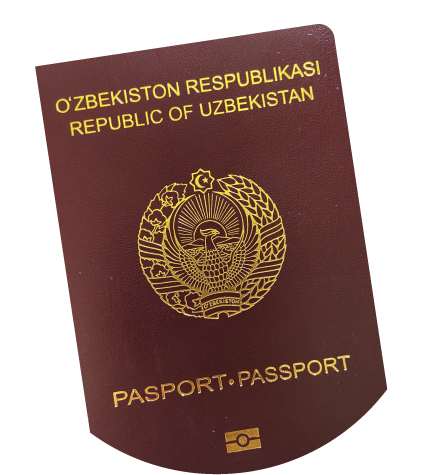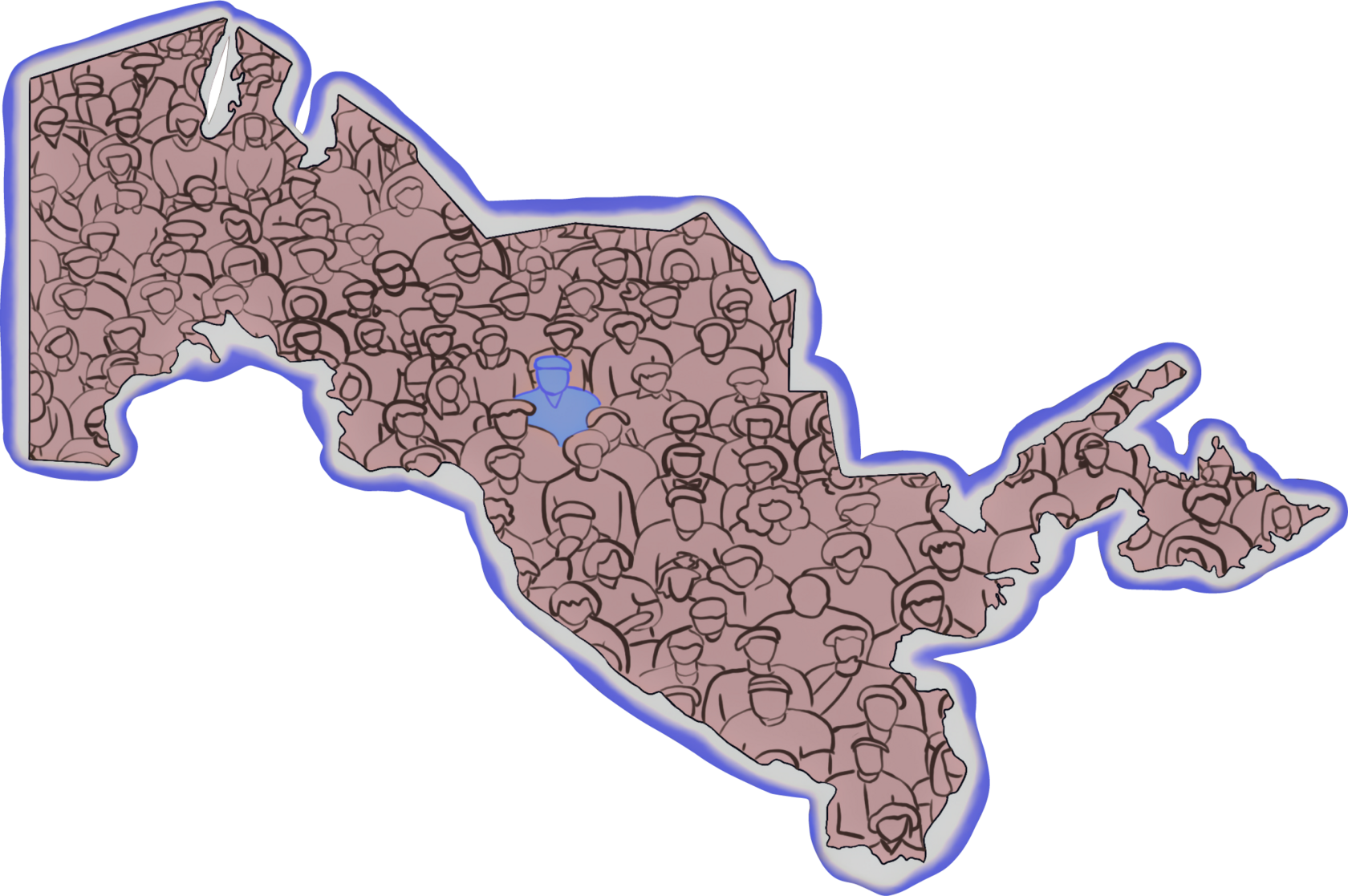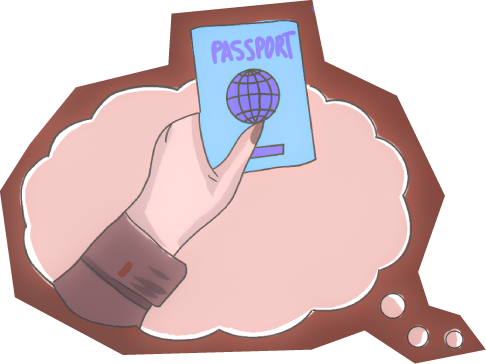
Citizenship for all: progress of Uzbekistan






Path to citizenship

Fatima (not her real name) is an invisible person. After the collapse of the Soviet Union, she has remained without documents. Her vote is not counted in election. She was often refused employment, although she is professional in her sphere. She cannot own a firm legally. Neither can she cross the border of her country.
- "It is difficult to live without citizenship. It is very uncomfortable and difficult to blend in the society. I have a constant fear of starting anything because everything will reach an impasse because of citizenship. Sometimes it feels that it would be a problem even to die. It is difficult to accept both morally and psychologically, I have a feeling that I have no homeland. I am lonely and abandoned by everyone," said Fatima, who is on her way to obtaining citizenship.
Uzbekistan has achieved significant progress recently in ensuring equal citizenship for all its citizens. The constitution of Uzbekistan guarantees equal rights and opportunities to all citizens regardless of their ethnicity, race and sex. Diverse policies and programmes have been implemented to ensure equal access to education, healthcare, and employment opportunities. The government makes efforts to improve the situation of promoting gender equality and protecting women's and children's rights.
Uzbekistan has passed a range of legal acts and regulations in recent years regarding citizenship in the Republic of Uzbekistan:
2008
2008
The law of the Republic of Uzbekistan dated 17.04.2008 No. ZRU-154 "On countering human trafficking";
2017
2017
The decree of the President of the Republic of Uzbekistan dated 29.05.2017 UP-5060 "On approval of the Regulation on political asylum process in the Republic of Uzbekistan";
2019
2019
The law of the Republic of Uzbekistan dated 2.09.2019 No. ZRU-561 "On protection of women from harassment and violence";
2020
2020
The law of the Republic of Uzbekistan dated 13.03.2020 No. ZRU-610 "On citizenship in the Republic of Uzbekistan";
The decree of the President of the Republic of Uzbekistan dated 22.06.2020 No. UP-6012 "On approval of the national strategy on human rights of the Republic of Uzbekistan";
2021
2021
The law of the Republic of Uzbekistan dated 04.06.2021 No. ZRU-692 "On legal status of foreign citizens and stateless persons in the Republic of Uzbekistan".
In recent years, the government of Uzbekistan has made many efforts to reduce and eliminate the 'statelessness' status in the republic. From 1992 to 2016, the Republic of Uzbekistan granted citizenship only to 482 persons. According to numerous messages in the media, it was difficult to acquire citizenship in Uzbekistan. After President Shavkat Mirziyoyev came to power in 2016, the situation has changed drastically. Until mid-2023, citizenship was granted to 83,793 people.
In recent years, the government of Uzbekistan has made many efforts to reduce and eliminate the 'statelessness' status in the republic. From 1992 to 2016, the Republic of Uzbekistan granted citizenship only to 482 persons. According to numerous messages in the media, it was difficult to acquire citizenship in Uzbekistan. After President Shavkat Mirziyoyev came to power in 2016, the situation has changed drastically. Until mid-2023, citizenship was granted to 83,793 people.
According to Shamil Nagayev, director of Texno-Soft LLC, there had been relatively many stateless persons until last year in the country. According to the UN estimates, Uzbekistan has nearly 70 thousand stateless persons in 2021. In recent years, the country has passed a range of legal acts to reduce obstacles to acquiring citizenship and to choosing a place to live.
Now experts assess the situation as positive. Key achievements of Uzbekistan include passing of an improved law on citizenship of the Republic of Uzbekistan in 2020 and change in practice of birth registrations. It allowed reducing the number of stateless persons significantly. In 2021, Uzbekistan reduced this number almost by half by granting or confirming citizenship of 33 thousand out of 70 thousand registered stateless persons.
According to the law of the Republic of Uzbekistan “On citizenship of the Republic of Uzbekistan", there are no specific restrictions to acquiring citizenship in the country, such as fluent language skills, availability of capital, etc. There is only one constraining factor – the period of residence in the country to obtain citizenship – five years.
Now experts assess the situation as positive. Key achievements of Uzbekistan include passing of an improved law on citizenship of the Republic of Uzbekistan in 2020 and change in practice of birth registrations. It allowed reducing the number of stateless persons significantly. In 2021, Uzbekistan reduced this number almost by half by granting or confirming citizenship of 33 thousand out of 70 thousand registered stateless persons.
According to the law of the Republic of Uzbekistan “On citizenship of the Republic of Uzbekistan", there are no specific restrictions to acquiring citizenship in the country, such as fluent language skills, availability of capital, etc. There is only one constraining factor – the period of residence in the country to obtain citizenship – five years.
- "Most countries of the world somehow restrict access to citizenship because they provide social benefits to their citizens. Our country does the same. For example, the budget of our country has one of the largest item of expenditure on social support and healthcare. Most healthcare services must be paid for, yet rates for citizens and non-citizens are different. In other words, the state makes efforts to provide social security to its citizens with scarce resources," Nagaev said.
Stateless people in Uzbekistan face many problems, including restricted access to basic services and protection under the law. However, they can obtain citizenship as part of a simplified naturalisation procedure, which grants them more rights and protection. To have a right to participate in the procedure, a person must live in Uzbekistan for at least five years and have proficiency in the state language. The application process can take up to six months and includes background check and interview with officials. Citizenship not only provides more legal protection to the people, but also facilitates access to healthcare, education and other essential services.



Azima's life has gotten better after she obtained citizenship
Azima was granted citizenship in 2023. Before that, she had faced restrictions almost in everything: she could not participate in elections, go abroad, get an official job.
- "It is very difficult to live without citizenship, I am a Muslim and I cannot perform such a mandatory duty as Umrah or Hajj. I cannot get a job because I need to specify my citizenship on HeadHunter. I was embarrassed because I did not have it… Even when I specified it automatically, many firms, companies did not accept my CV. Every employer knows that a stateless person is a pain in the neck and no one wants to take the responsibility," Azima said.
Her children felt the same discomfort because they had restricted rights due to the statelessness of their parents. So many doors and opportunities have opened to Azima once she obtained citizenship of the Republic of Uzbekistan.
The important role of such international organisations as UNHCR, UN Population Fund, Organisation for Security and Co-operation in Europe (OSCE), Office for Democratic Institutions and Human Rights (ODIHR), USAID in ensuring rights and freedoms to stateless persons should be mentioned as well.
In 2021, the President of Uzbekistan amended the law “On citizenship of the Republic of Uzbekistan” regarding simplification and acquisition of citizenship. Thus, article 6 was amended as follows: "A person registered at a place of permanent residence in the Republic of Uzbekistan until January 1, 2005 and who had never been a citizen of a foreign state before, shall be recognised as a citizen of the Republic of Uzbekistan, upon request. A person who has lived in the Republic of Uzbekistan for at least fifteen years before applying for citizenship of the Republic of Uzbekistan and who has never been a citizen of a foreign state during this period shall be recognised a citizen of the Republic of Uzbekistan. A child, one of whose parents (single parent) is recognised as a citizen of the Republic of Uzbekistan, who has not accepted citizenship of a foreign state and residing in the Republic of Uzbekistan, shall be recognised as a citizen of the Republic of Uzbekistan, upon request.
The important role of such international organisations as UNHCR, UN Population Fund, Organisation for Security and Co-operation in Europe (OSCE), Office for Democratic Institutions and Human Rights (ODIHR), USAID in ensuring rights and freedoms to stateless persons should be mentioned as well.
In 2021, the President of Uzbekistan amended the law “On citizenship of the Republic of Uzbekistan” regarding simplification and acquisition of citizenship. Thus, article 6 was amended as follows: "A person registered at a place of permanent residence in the Republic of Uzbekistan until January 1, 2005 and who had never been a citizen of a foreign state before, shall be recognised as a citizen of the Republic of Uzbekistan, upon request. A person who has lived in the Republic of Uzbekistan for at least fifteen years before applying for citizenship of the Republic of Uzbekistan and who has never been a citizen of a foreign state during this period shall be recognised a citizen of the Republic of Uzbekistan. A child, one of whose parents (single parent) is recognised as a citizen of the Republic of Uzbekistan, who has not accepted citizenship of a foreign state and residing in the Republic of Uzbekistan, shall be recognised as a citizen of the Republic of Uzbekistan, upon request.
Legal state of foreign citizens and stateless persons in the Republic of Uzbekistan
Foreign citizens and stateless persons residing in the territory of the Republic of Uzbekistan shall have rights and freedoms according to the rules of international law. They shall have obligations specified by the Constitution of the Republic of Uzbekistan, laws and international treaties of the Republic of Uzbekistan.
It is worth mentioning that foreign citizens and stateless persons residing in the Republic of Uzbekistan are equal before the law of the Republic of Uzbekistan without distinction of sex, race, ethnic background, language, religion, social background, beliefs, personal and social status.
It is worth mentioning that foreign citizens and stateless persons residing in the Republic of Uzbekistan are equal before the law of the Republic of Uzbekistan without distinction of sex, race, ethnic background, language, religion, social background, beliefs, personal and social status.
COVID-19 pandemic impact on the rights of stateless persons
During the COVID-19 pandemic, the government of Uzbekistan included asylum seekers, refugees and stateless persons into the national COVID-19 vaccination plans along with their citizens, which is one of the key positive achievements in the given situation. The state provided almost all kinds of healthcare services, including coronavirus tests; the tests were available at no cost.
During the COVID, the government of Uzbekistan took measures to expand social protection of people addressing vulnerable populations. It established the Anti-Crisis Fund, which funds were used to pay out one-time welfare benefit to low-income and vulnerable populations in the amount of 220 thousand sum (about 21 dollars) per every family member. The aid was provided based on the so-called 'iron notebook', a list of people with certain criteria, including those who lost jobs and sources of income as a result of lockdown measures.
Stateless persons were listed as recipients of social aid upon recommendation of the heads of local governments. Stateless persons were not specified as direct recipients of aid from May 2020 to February 2021. They could improve their situation significantly if they were listed on the 'iron notebook' as persons below the poverty line. Most stateless people were migrant workers, who came back en masse to their homeland. To solve the situation, the government introduced the new category of economic activity from September 1, 2020, namely self-employed, which ensured special benefits like exemption from taxes and social expenditures.
During the COVID, the government of Uzbekistan took measures to expand social protection of people addressing vulnerable populations. It established the Anti-Crisis Fund, which funds were used to pay out one-time welfare benefit to low-income and vulnerable populations in the amount of 220 thousand sum (about 21 dollars) per every family member. The aid was provided based on the so-called 'iron notebook', a list of people with certain criteria, including those who lost jobs and sources of income as a result of lockdown measures.
Stateless persons were listed as recipients of social aid upon recommendation of the heads of local governments. Stateless persons were not specified as direct recipients of aid from May 2020 to February 2021. They could improve their situation significantly if they were listed on the 'iron notebook' as persons below the poverty line. Most stateless people were migrant workers, who came back en masse to their homeland. To solve the situation, the government introduced the new category of economic activity from September 1, 2020, namely self-employed, which ensured special benefits like exemption from taxes and social expenditures.
Awareness-raising campaigns are needed
Granting citizenship to those who want to acquire it is principally the humanitarian and legal duty of the state. It is also economically viable as the state is filled with its citizens.
- "For a person to be stateless is like a disaster, the cost of living is higher, with fewer rights and opportunities unlike others. I think the application process must be simplified. Those who want to acquire citizenship must provide their personal data. OVIR (visa and registration department) must perform all checks, provide reference information within a specified period. The term of citizenship granting may be reduced to 3-6 months," Nagaev said.
Moreover, awareness-raising campaign must be held to raise awareness of the population and decision-makers on the problems of stateless people in the country. Systemic legal support must be provided to stateless people who want to acquire citizenship. The government of Uzbekistan needs to ensure that no child is born stateless and not to deny citizenship, its loss or deprivation on the grounds of discrimination. Birth registration must be ensured to avoid the practice of statelessness, and UN's practical recommendations about stateless persons should be applied in practice.